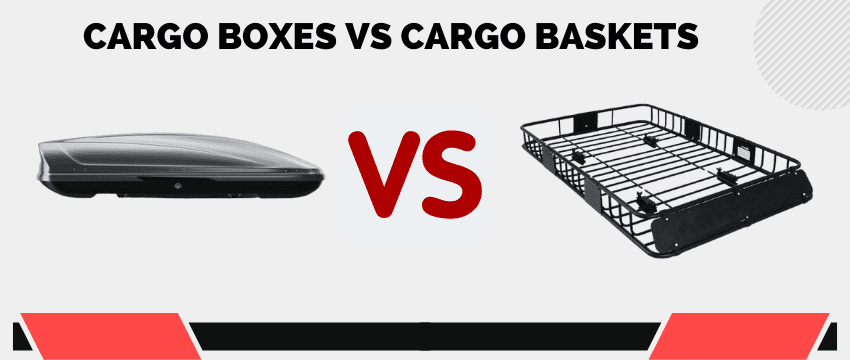Hey there! So, you’re thinking about bringing a roof box to Cuba? Maybe you’re planning a road trip across the island or just need extra storage for family visits. Whatever your reason, navigating Cuba’s customs rules can feel like solving a puzzle blindfolded. But don’t stress—I’ve got your back. Let’s break down everything you need to know, from official policies to clever workarounds.
Understanding Cuba’s Customs Rules
Why Customs Rules Matter
Cuba’s import laws are no joke. The government tightly controls what comes into the country to protect local markets and manage shortages. For big-ticket items like roof boxes, you’ll face strict paperwork, fees, and maybe even a grumpy customs officer. Under Cuban law, individuals can import goods for personal use, but commercial quantities? Forget it. You’ll need to prove your roof box isn’t for resale. Annoying? Totally. But hey, rules are rules.
What’s the Deal With Taxes?
Here’s the kicker: Cuba slaps a 10% to 30% customs duty on imported goods, depending on the item’s value. Roof boxes fall into the “vehicle accessories” category, which usually means a 15% duty. But wait—there’s also a 20% processing fee if your box is shipped via courier. Ouch. If your roof box costs $500, you could pay up to $175 just in fees. For real? Yep. Budget extra cash or prepare for sticker shock.
The Paperwork Nightmare
You’ll need a commercial invoice, proof of purchase, and a detailed description of the roof box. Miss one document? Your box might gather dust in a Havana warehouse for months. Oh, and Cuba’s customs website? It’s stuck in the ‘90s. Better print everything in triplicate and pray the system doesn’t crash. Pro tip: Translate documents into Spanish. “Roof box” becomes caja de techo—drop that term like you’re fluent.
Challenges of Shipping to Cuba
Why Shipping Sucks (Most of the Time)
Let’s be real: Shipping to Cuba is like playing roulette. US embargoes? Still a thing. Even if you’re shipping from Canada or Europe, delays are guaranteed. One Reddit user waited 8 months for a surfboard to clear Havana customs. EIGHT MONTHS. Imagine waiting that long for a roof box? I’d lose my mind. Plus, private couriers like DHL or FedEx charge 3x the normal rate for Cuba-bound packages. Not cool.
The “Gift” Loophole
Here’s a workaround: Label your roof box as a “gift” to avoid commercial taxes. Cuba allows gifts worth under $200 to enter duty-free. But here’s the catch—roof boxes usually cost way more. Splitting it into “parts” (like base + lid) might help, but customs isn’t dumb. They’ll spot a $300 “gift” and hit you with fees anyway. Still, it’s worth a shot if you’re feeling lucky.
Smart Workarounds for Savvy Importers
Travel With It (Yes, Really!)
If you’re flying to Cuba, check the roof box as oversized luggage. Airlines like Copa or Air Canada allow bags up to 62 linear inches (length + width + height). Most roof boxes fit, but measure twice! You’ll pay $100–$200 extra, but it’s cheaper than shipping. Bonus: No customs forms if it’s “personal luggage.” Just act casual at the airport—no need to mention it’s staying in Cuba forever.

Team Up With Travelers
Know someone visiting Cuba soon? Offer to cover their baggage fees in exchange for hauling your roof box. Facebook expat groups are gold mines for this. Post something like, “Hey y’all! Need a roof box buddy—I’ll Venmo you $150!” Just vet people carefully. The last thing you want is a stranger ghosting you with your Thule.
Key Features of Roof Boxes
| Feature | What to Look For |
|---|---|
| Material | ABS plastic (durable) vs. fiberglass (lightweight) |
| Capacity | 16–18 cubic feet fits 4–6 suitcases |
| Locking System | Dual-side locks for security |
| Weight Limit | Max 100–165 lbs depending on model |
| Aerodynamics | Low-profile design reduces wind noise |
Final Tips to Avoid Headaches
Stay Updated on Policies
Cuba’s import rules change faster than TikTok trends. Check the Aduana General de la República site monthly. Better yet, call your nearest Cuban consulate. Yeah, it’s old school, but a 10-minute call could save you months of hassle.
Buy Local (If Possible)
Havana’s mercados sell roof boxes occasionally—usually used ones from Europe. Prices are 30% higher, but you skip the import madness. Ask around in Vedado or Miramar. Who knows? You might score a bargain and make a new friend.
Conclusion
Importing a roof box to Cuba isn’t for the faint of heart, but it’s doable with patience and creativity. Stick to airline luggage hacks, lean on traveler networks, and keep your paperwork tighter than a salsa beat. Safe travels—and may your roof box arrive before your next birthday!
FAQs
1. What are the customs restrictions in Cuba?
Cuba restricts items deemed “luxury” or commercial. Think electronics, vehicles, and high-value accessories like roof boxes. You’ll pay duties from 10% to 30%, and everything needs a commercial invoice. Forbidden stuff? Weapons, porn, and anything threatening “public morals.” Yeah, they’re strict.
2. What is the import policy in Cuba?
Individuals can import goods for personal use tax-free up to $200. Beyond that, prepare for fees. Businesses need special permits—good luck getting one. Most imports go through state agencies, so private shipments get extra scrutiny. It’s a long shot, but persistence pays off.
3. Can items be shipped to Cuba?
Technically, yes—but couriers charge a fortune, and delays are brutal. USPS doesn’t ship to Cuba, but DHL/FedEx do. Expect to pay $300+ for a roof box and wait 2–6 months. Pro tip: Use a Miami-based freight forwarder familiar with Cuban rules.
4. What can be imported to Cuba?
Clothes, meds, and non-electric household items usually slide through. For roof boxes, emphasize “personal use” and attach a receipt. Gifts under $200 are safest. Oh, and don’t forget: Spanish paperwork is non-negotiable.
5. What can I not send to Cuba?
Avoid anything political, pornographic, or military-related. GPS devices? Banned until 2021, but still risky. Also, don’t ship alcohol or tobacco—Cuba’s got plenty already. Stick to practical items and keep your package boring to dodge trouble.
Catch you later—and happy travels! 🚗💨
Our team is creating outdoor-gear relevant articles with passion. If our articles can help you to find the correct solutions for your questions, we will be happy about that. In the content creation process, we usually collect accurate and useful information online or offline to compile our content in an organized way. Consequently, we can guarantee that you can discover some expected answers to your questions. We appreciate your time on our site.







